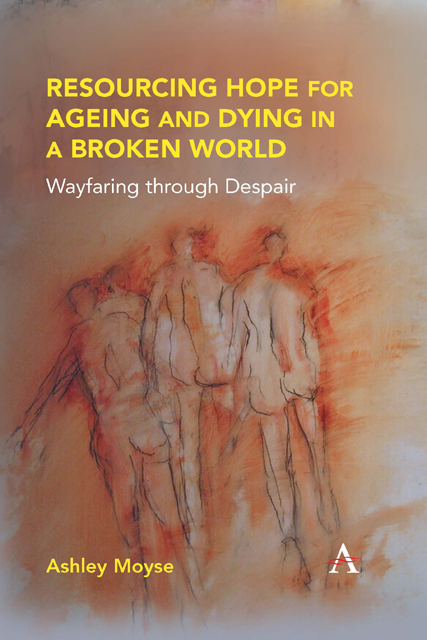Book contents
3 - Dying Deceived by Despair in Disguise
Published online by Cambridge University Press: 10 January 2023
Summary
‘I am going to die’.
‘I am going to die on my own terms’.
These two statements stand as resolute declarations, which persons might pronounce about their dying. However, the two statements are not equivalent.
With the former, ‘I am going to die’, I am reminded of the words a terminal cancer patient shared with me many years ago while I was working at a cancer clinic and researching chemotherapy-induced peripheral neuropathies. Patricia refused all further treatments and was explicit about her readiness to die. She was an ailing woman with an aggressive pancreatic cancer and metastatic disease, suffering significant fatigue and numbness, tingling and pain in her limbs from previous treatment rounds. Her body was gauntly, her skin a pale palate of whites and reds, and her eyes set paradoxically tired and alert on her face. She was confronting the imminent threat of death. Yet, her living towards the mystery of life inclusive of death while revealing the fullness of her frailties and dependencies seemed to consider death as an end in itself. While I cannot say that she wanted to live as such (as an expression of pure will), she certainly did live knowing she was in the midst of death. She lived opposing the familiar logic of several oncologists I had come to know who always seemed to have another treatment available.
Her cancer, although differing in origin, was similar to that of journalist A. A. (Adrian Anthony) Gill who, at 62, described his metastatic lung cancer as ‘an embarrassment of cancer, the full English’. He would go on to describe, ‘There is barely a morsel of offal not included’. The oncologist who was treating Gill, predictably it seems, ‘dangled before this dying man a drug that he knew he couldn't prescribe […] [and] which give very modest survival gains in most […] but are presented to the patient as a sure thing’. Gill penned an essay for The Times (appearing 11 December 2016), through which he begrudged the NHS for not paying out so that patients might procure such treatments (Hope can be contemptuous). Patricia too was offered similar, experimental interventions – she refused these with certain realism: ‘I am going to die’.
With the latter, ‘I am going to die on my own terms’, I am reminded of Simon Critchley's claim that ‘Death is not usually chosen as an end in itself, but for some other reason’. As he suggests, some people choose to die in order to avoid pain and suffering while others choose to die for a cause.
- Type
- Chapter
- Information
- Resourcing Hope for Ageing and Dying in a Broken WorldWayfaring through Despair, pp. 63 - 90Publisher: Anthem PressPrint publication year: 2022



